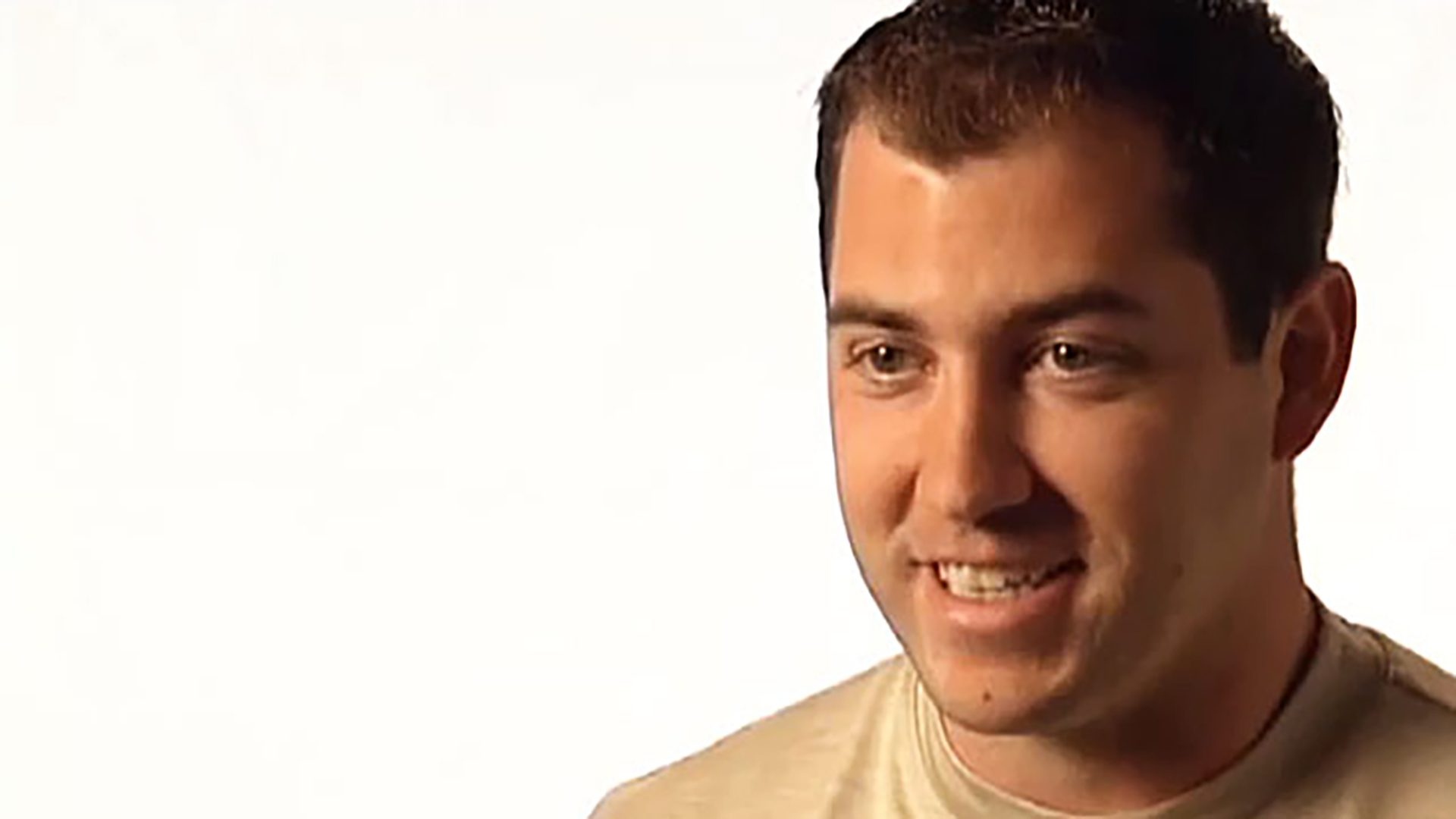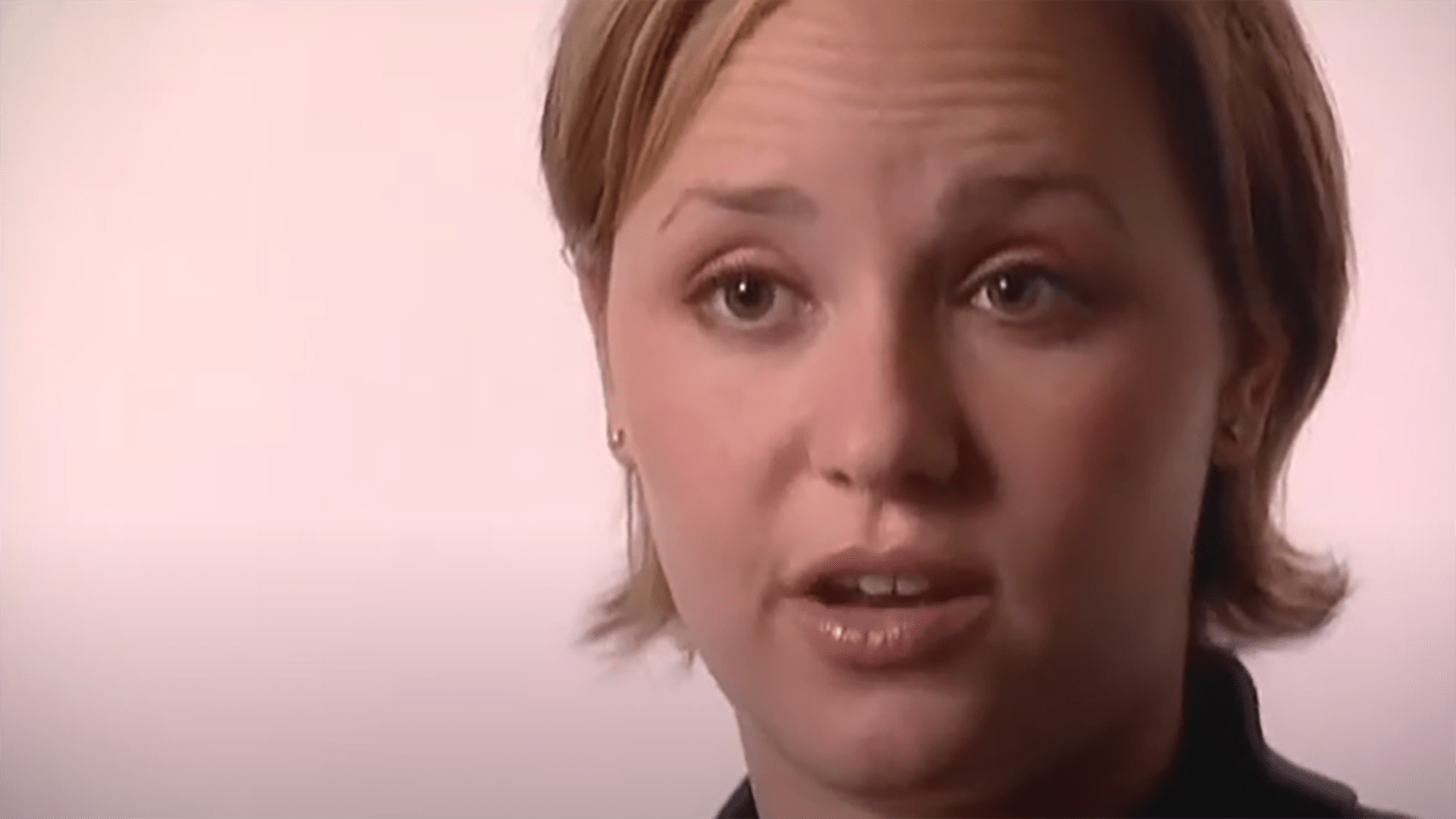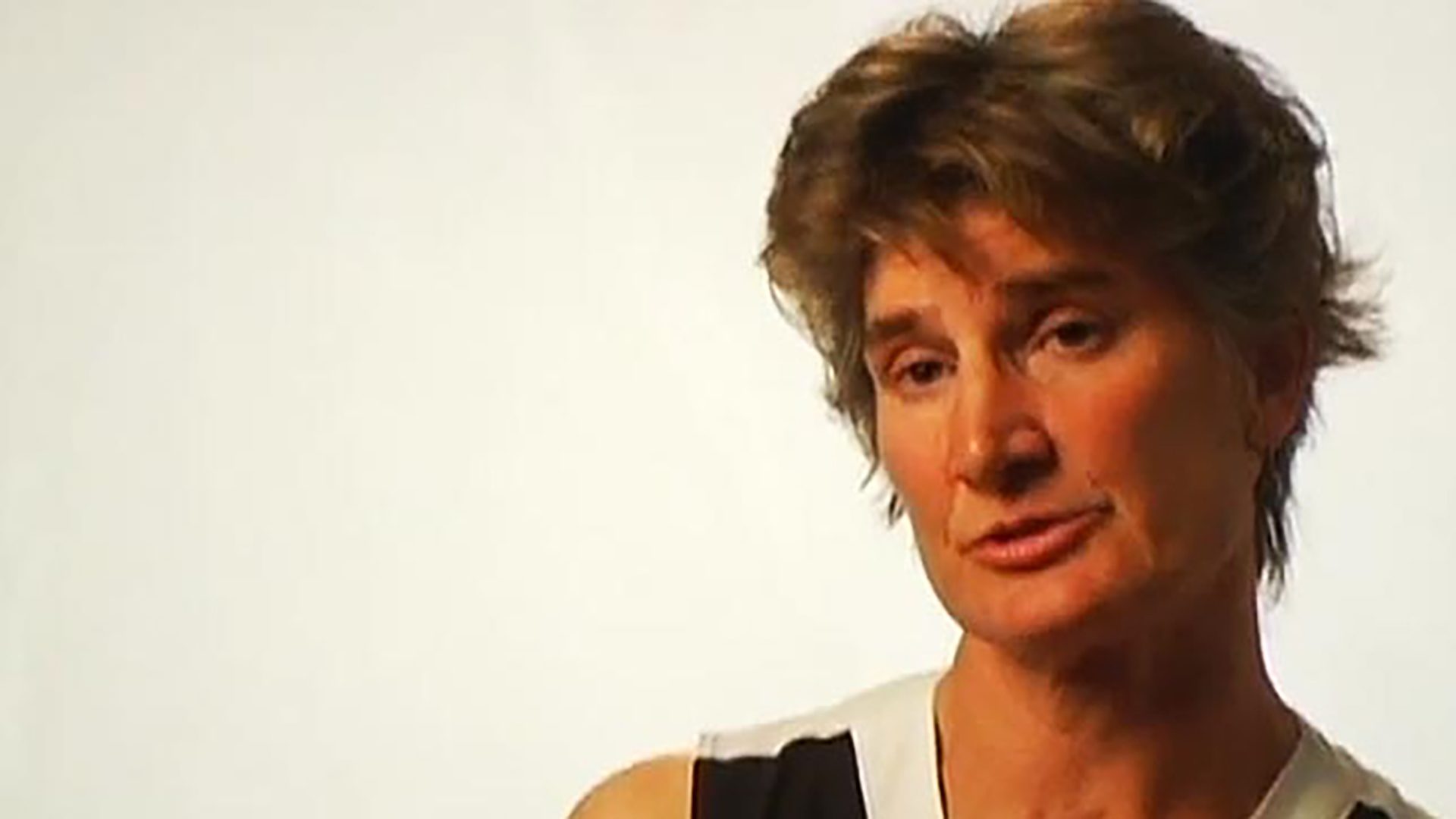Survivor Interview – Terry H.
Terry is a leukemia survivor. He discusses dealing with the aftereffects of chemotherapy, dating, and his relationship with his family.

I was perfectly healthy. My mom had grabbed me in the store, and I ended up scratched. We were driving up to Chicago, and I couldn’t get my hand through my jacket. On Christmas Eve, my aunt and uncle took me to the emergency room. I was a perfectly normal kid until they said to my parents, “You have a very, very sick child in there.” She said, “But he was running around yesterday, and he looked very normal.” If and when I do have kids, I think it would be a little more special knowing that something could happen any minute.
I was in the hospital for the first 45 days, basically to get me into remission, and then I had just over three years of chemotherapy. I was very lucky. Everything went a-b-c-ish. I just wanted to be back in school. My mother reminded me that I just wanted to walk through the aisles of the grocery store. It was something to do to get out of the hospital. Everything went well through grade school and high school. I graduated from college. I played four years of collegiate soccer, and I also sailed as well. I went to a small Jesuit school in southern Alabama.
Since I was so young, there are development issues. I was a sprinter in high school and I was really good at the short distance, but over the long distances, I tended to not to do as well. With soccer, I was a goalkeeper, so I didn’t necessarily do all the running that everyone else did, but I still did a good bit. I’d get yelled at by coaches. “Come on, you might be a goalkeeper, but get your butt in shape.”
Sophomore year in college, they did something like a Health Day, where they were testing lung capacity with smokers and non-smokers. They asked if I had ever smoked. I said, “No, thank you. I already had cancer.” They said, “Your lung capacity isn’t as high.” My lungs actually didn’t fully develop. They’re about 30% smaller than they should be. I have to work that much harder when I’m playing soccer and other sports. They’ve given me exercises now to use more of the capacity. It’s not something to dwell on by any means, but it’s good to know.
With dating and relationships, sometimes there is that stigma. Somebody knew somebody that died from cancer, and oftentimes it’s a delicate issue. A big part of my life is volunteering and working with camps, so the fact that I had cancer usually tends to come up in conversation when I’m talking about a camp. They ask, “How’d you get involved with that?” Then it comes out that, “Yes, I am a cancer survivor. I was diagnosed when I was six. I’ve been out of treatment since I was nine.” I’m 26 now, so that’s a good long time.
It’s interesting the reactions you get. Some people just accept it and others are, “Well…” and then all of a sudden, you don’t get a call back or something. You wonder what it is, if it’s your personality or the fact that you had cancer, and you never know. Maybe it’s best that you’re not with that person if they see that stigma of cancer or being a survivor.
I’m doing mortgages now. With clients, you usually get one of two responses: “Oh, that’s great,” or, “Oh, I feel so bad.” Usually, I like to hear the “Oh, that’s great” because I am a survivor, and it’s something that’s very much a part of me. Whereas, “Oh, that’s so bad,” that’s in my past. It happened. It makes you stronger, definitely.
I find it a personal goal to go out and show people that, here I am, successful and doing well. I don’t have a big C on my head. Oftentimes you get, “You don’t look like you had cancer.” Well, I don’t.
I see volunteering as part of my life, as my way of helping other people. It’s like you go to church every week. I enjoy it. People say, “It takes a lot of time,” when I was volunteering every Wednesday. We’re on 100% commission at work, but still I left it on my voicemail, “I’m out till 1:00. If you really need me, get me on my cell phone and I’ll try to call you back.” That’s part of me, so that’s why I enjoy doing it.
I remember talking to this one guy’s mom. He was eight years old and she came back and said, “We don’t think we could have done it without you.” That in itself, that makes it all worthwhile, just hearing that type of thing. If it becomes a burden, then I can take a break and then resume it when it becomes fun again.
My dad worked for the U.S. Postal Service headquarters. He’s a psychologist down in D.C. and luckily the insurance was good. Still, I had a brother who was a year younger and a sister that is four years younger. At the time, things were very tight. Sometimes we couldn’t go to McDonald’s and get a Big Mac. We’d have to get water and a hamburger or something. My brother and sister sometimes would say stuff like, “If you didn’t have cancer. . .” joking about it, but I took it to heart. It was hundreds of thousands of dollars. Luckily, insurance covered a good portion of it. But my parents, I thank them every day for taking maybe not the easy route in terms of doing different things. It would have been nice to go on family vacations all the time, but usually we went once a year to Chicago and that was the limit. I just always wonder if it would have been different growing up had we not had the financial burden of the cancer.
My mom or dad were with me 99% of the time when I was in the hospital. There was a lot of attention focused on me. My brother and I are a year apart, and we’re the best of friends. My sister was two years old when I was diagnosed, and there definitely were issues socially. When I’d go off to camp, I remember her even saying that she wanted to have cancer so she could go to camp. My brother was a very intelligent five-year-old at the time. In one of the stories with him, he said, “Mom, I know if you have cancer in your arm or leg you can just chop it off, but how do you pull out all their veins?” Also with ALL laundry detergent, he said we can’t use that because he thought that’s what caused me to get cancer.
My mom, in particular, was there most days with me. I’d have weird food cravings when I was in the hospital. She would go to the store, usually every other day, and pick up four to five jars of pickled herring. My mom and I are very close. Also, one of my aunts came in from Chicago one time when my mom had shingles, and she couldn’t be around me. I have a very special bond with both my aunt and my mom, in particular. My dad and I very much get along as well; it’s a little more special versus my brother and sister.
Survivorship, it’s something special that’s deep down inside. Sometimes you’ll be with friends, who have worries and they’ll say, “Well, this happened, and I got bad grades in school, and my parents are mad at me.” Or, “I just lost my job.” Not to degrade any of those, it’s not good, but especially down inside you, you think, “This is all trivial.” Being a survivor, you’ve been through a lot. You were on that line and you survived. You made it to the finish line and you’re there. Survivorship is an ongoing journey.
My name is Terry Hillery, I’m 26 years old, and I’m a 20-year ALL survivor.

